
May 7, 2018
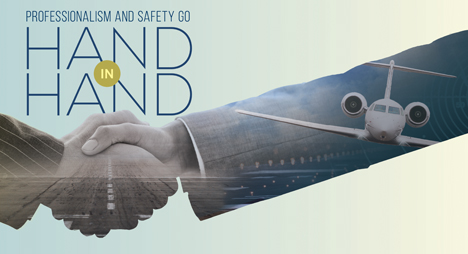
Safety is the natural result when an aviation professional is disciplined, dedicated and ethical.
Jeff Wofford is surprised when people ask, what does professionalism in aviation have to do with safety? Wofford, group lead of the Professionalism Working Group of the NBAA Safety Committee, puts it simply: “Professionalism has everything to do with it!”
“Professionalism in aviation is the pursuit of doing it right, all the time, even when nobody’s looking,” said Wofford. “The discipline and ethical behavior of professionalism go hand in hand with safety. You have to do the same thing every flight. There are no shortcuts.”
Wofford and his colleagues launched the NBAA Dr. Tony Kern Professionalism in Aviation Award several years ago as one way of promoting and recognizing industry leaders in professionalism. The idea is to encourage those in business aviation to be as good as they can possibly be, and to keep reinventing themselves with training, continuous improvement, professional development and more.
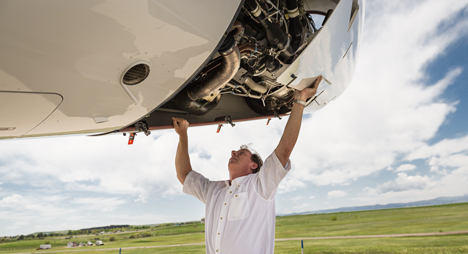
“If you think you know it all, you may as well throw the keys in the airplane and walk away,” said Wofford.
NBAA spoke with four 2017 Kern Award recipients about their insights on how being professional enhances safety. Here are their views.
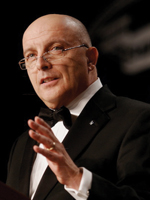
Robert Agostino
Aviation Director,
Group Holdings Aviation
Agostino, a former Bombardier aviation director and test pilot who launched the OEM’s annual Safety Standdown many years ago, is a strong believer in continuous education and going beyond what’s required by regulations.
“A professional wants to know everything they can, to be the best pilot they can be, because that’s who they are,” said Agostino. He believes that the more passionate someone is about their job, the more professional and committed to excellence they will be. “The bottom line is, when you put somebody else in the back of the airplane that has no control, you have the moral obligation to be the best you can be. Everybody who is in a business that affects other people should be continually developing, learning and improving.”
Agostino notes that true professionals go way beyond the minimum FAA requirements, attending safety standdowns and NBAA regional forums, undergoing upset training and generally seeking as much knowledge as possible.
“It doesn’t matter what you did yesterday,” declared Agostino. “What matters is what you are doing today.”
Agostino likes to tell the story of Gene Cernan – pilot, astronaut and the last man to walk on the moon – who Agostino helped train in the Bombardier Learjet 45.
“At 82 years old, Gene was working to be a better pilot than he was at 81,” said Agostino.
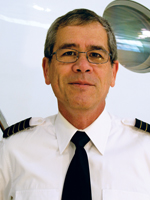
James Albright
Director of Aviation for a Gulfstream operator and webmaster for Code7700.com
“A true professional can never know enough,” said Albright, a former U.S. Air Force pilot who has flown Gulfstreams for charter operators, as well as for company flight departments. “If you think you have the battle won, you’ve lost.”
Albright’s passion is his robust Code7700 website, which contains a wealth of information related to many aspects of flying and gets many thousands of visitors each month. “A professional is a pilot who knows well enough to know when the manual is not right, or knows the book, but knows he needs to know more than the book,” notes Albright.
He advocates reading accident reports to see what someone else did in a certain situation. “It’s important to think, ‘that could have been me,’ and to assume that the pilots were doing the best they could,” said Albright. “Pilots are not infallible, but we are also not incapable of learning.”
Albright encourages all those in business aviation – not just pilots – to “strive to be the professional that your loved ones think you are.”
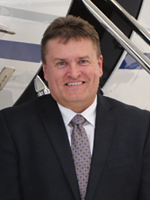
Gerald Ferriss
Assistant Manager,
Aircraft Maintenance and Aviation Safety Co-Chairman,
The Home Depot Aviation
“Professionalism and safety go hand in hand, so both need to be part of the culture and mindset of an organization,” said Ferriss, who believes that it’s important for managers at all levels to set an example for their department and “practice what they preach.”
Although Ferriss believes that most people have the character and desire to be truly professional, he acknowledges that it takes a lot of effort and training.
“Early in my career, I had someone that sparked me and drove me in that direction,” said Ferriss, who believes that having a mentor can be a game-changer for some people.
Just because someone has more experience doesn’t mean that they automatically will make a good mentor, notes Ferriss. “Sometimes people are reluctant to change, but it’s very important to train, attend safety standdowns and classes, and to continue to develop yourself.”
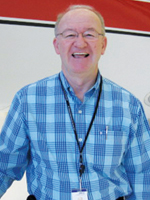
Donald Paddock
Senior Director of Aviation for a Midwest company
“No one drifts into excellence,” said Paddock, a former U.S. Air Force pilot who has been with his company for more than 30 years. “Excellence is achieved with diligence, discipline and a desire to excel. True professionals are drawn to standards and compliance. You can tell who they are by their skills and how they handle themselves with others. They are the whole package.”
Flight departments especially want to have such a person as their safety lead, said Paddock, where they set the tone with their skills and behavior: “It’s like the opposite of a bad apple. A good apple will set the bar high, lifting others to be like that, too.”
Having a safety management system and achieving Level 3 of the International Standard for Business Aircraft Operations has helped the communication skills of everyone in the flight department, and Paddock believes that working as a team “has brought everyone together in a setting of excellence.”
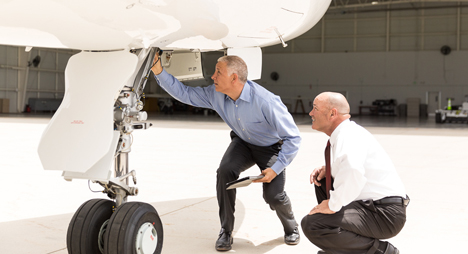
View This Article in the App
This article originally appeared in the May/June 2018 issue of Business Aviation Insider.


 International Business Aviation Council Ltd.
International Business Aviation Council Ltd.